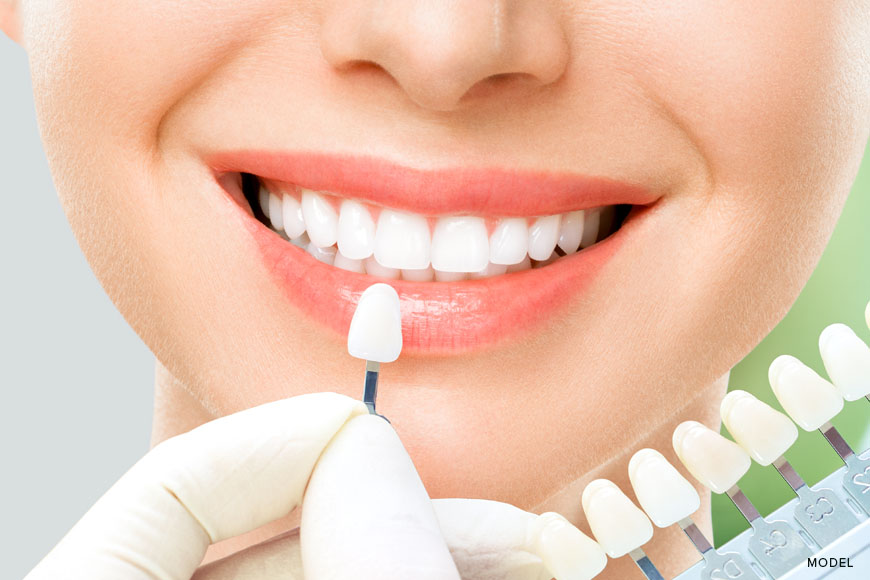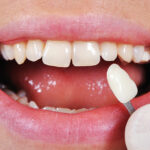Are veneers permanent? If you’re unhappy with your smile due to chips, cracks, discoloration, or misshapen teeth, veneers may be the answer you’ve been looking for. Veneers are a thin layer of porcelain or composite resin that covers the front surface of your teeth, improving their appearance. Veneers have been utilized in cosmetic dentistry for many years and are a popular option among patients. However, some people are hesitant about investing in veneers since they’re not sure if they’re a long-term solution or just a temporary fix. In this article, we’ll explore the benefits and drawbacks of veneers to assist you in determining whether they’re the best choice for you.
Benefits of Using Veneers for Teeth Enhancement
Veneers offer a range of benefits for enhancing teeth. They can address the following dental concerns and give you a more appealing smile:
-
Enhanced Appearance
Veneers can significantly improve the look of your teeth. They can correct issues such as discoloration, chips, and misshapen teeth, resulting in a more attractive smile.
-
Durability
Porcelain veneers are sturdy and can last up to 15 years with proper care. Composite veneers are not as long-lasting, but they’re still a great option for those seeking a more cost-effective alternative.
-
Low Maintenance:
Veneers necessitate little upkeep beyond regular brushing, flossing, and dental checkups. They don’t require any special care or attention, making them a convenient option for those with hectic lifestyles.
-
Non-Invasive
The process of obtaining veneers is non-invasive and usually entails minimal discomfort. There’s no need for anesthesia or drilling, making it a more comfortable option for patients.
Potential Risks and Disadvantages of Veneers

While veneers provide many advantages, there are also some risks and drawbacks to consider. Some of it are listed below:
-
Cost
Veneers can be expensive, particularly if you choose porcelain veneers. The cost can range from $800 to $2,500 per tooth, depending on the material and location.
-
Irreversibility
Once you have veneers, you can’t go back to your natural teeth. Veneers necessitate removing a small amount of the tooth’s enamel, and this procedure is irreversible.
-
Potential Damage
Veneers are strong and durable, but they can still be damaged by biting hard objects or grinding your teeth. If you have a habit of clenching or grinding your teeth, your dentist may recommend a night guard to protect your veneers.
Are Veneers Permanent?
Veneers can be considered both a long-term investment and a temporary solution. It’s crucial to understand that there are various sorts of veneers available if you’re thinking about obtaining them. Here are the most popular types of veneers:
-
Porcelain Veneers
This is the most popular type of veneer and is known for its durability and stain-resistant properties. Porcelain veneers are highly customizable in terms of shape, size, and color, making them a great option for achieving a natural-looking smile.
-
Composite Resin Veneers
This type of veneer is made of a tooth-colored material and is a more cost-effective option. However, they are not as strong as porcelain veneers and may require more maintenance.
-
Lumineers
Lumineers are a type of porcelain veneers that are ultra-thin and require minimal to no tooth reduction before placement. They are an excellent option for patients who have sensitive teeth or are hesitant about the permanent nature of traditional veneers.
While deciding between veneers and other dental restoration procedures, you should consider several factors, including price, durability, and desired results. It’s crucial to discuss your options with your dentist to determine if veneers are right for you.
At Madison Dentistry, our experienced team can help you determine the best option for your individual needs and provide high-quality dental care to improve your smile. Remember, investing in your oral health is a long-term investment in your overall well-being.
You may call us at 973-822-8003 to schedule your appointment.




